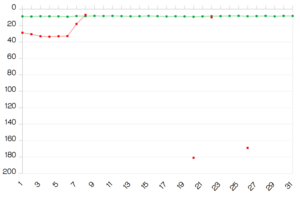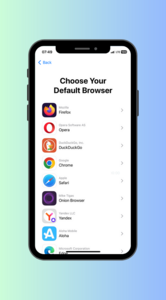Looking for a Free TV? Telly's Offer Sounds Tempting, But Also Like a Dystopian Privacy Nightmare.
Is this a reason why "dumb" TVs are making a comeback?

Free TVs at your doorstep
Telly’s dystopic offer
A company called Telly has garnered attention with its unique offering: a free 55-inch 4K TV in exchange for data collection and targeted advertisements displayed non-stop on an additional screen, that sits beneath the main TV and soundbar. All you need to do is answer some surveys and let Telly share your viewing habits with advertisers, and in exchange, you pay nothing for the devices.
In addition to vacuuming up a trove of data on how you use Telly, the content you watch, and the services you interact with, it will also detect the physical presence of you and any other individuals using the TV at any given time using its built-in camera, but you do have the option to cover it with a physical shutter.
But no worries, there are other ways for Telly to know if anyone’s there: Users have to agree to use it as the main TV and Telly partially assumes a 55-inch TV will be the primary set owing to its size alone, but it’ll also keep an eye on hours used to verify that someone’s actually watching on a regular basis. Additionally, a presence detection wave sensor inside Telly, exactly like the one built into Google’s Nest, can determine whether people are actually in front of the TV during ad spots.
Why you can't hide the Telly ad screen
Some people have wondered what’s to stop them from covering up the bottom screen or mounting the TV in such a way that it would be hidden. Yes, Telly thought of that possibility, too. It turns out the TV’s software interface makes the idea impractical. TellyOS puts crucial elements down there, including HDMI inputs, volume info, other settings, and the app tray. Operating the TV would quickly get inconvenient in any scenario where the bottom display is obscured.
The company states on its website that Telly is “the first TV paid for by brands.” But a company is not a non-profit. Telly must make profits, and it's trying to do so with users’ personal data.

It is because of AdTech that the saying "If it's free, you are the product" has become well known among internet users - and Telly just took the next step in this direction: They are not giving away free software, but free hardware; paid for with your data.
Can I use Telly without tracking?
If you choose to opt out of data collection, Telly’s policy states that you either have to send the TV back or pay.
This approach to content delivery raises questions about the ethics of surveillance capitalism and the commodification of personal data. By offering free TV, the service entices users to willingly sacrifice their privacy in exchange for entertainment. The intrusive nature of Telly's data collection practices not only raises privacy concerns but also contributes to the normalization of surveillance culture.
Despite all that, since their first announcement until this month more than 250,000 people have signed up to reserve a TV from them.
The company is making 500,000 TVs available starting this month.
A troubling slip in the privacy policy
One of the most significant criticisms directed at Telly revolves around its privacy policy, particularly in relation to children's data. The service's privacy policy has sparked controversy due to its alleged lax approach to safeguarding the personal information of young viewers.
According to a Verge article on the initial privacy policy published by the company, “the free TV company briefly wasn’t sure what it should do with data from kids”. The equally comical and creepy situation was a result of a human error that had left an employee’s comment meant for internal use in the privacy policy that the company had published.
Reporter Shoshana Wodinsky spotted a line that questioned whether there’s a way to avoid deleting the data it collects on children and published screenshots in a Twitter thread. Even without the mishap comment, the possibility of collecting children’s data is a violation to kids' privacy rights. Exposing children to targeted advertising from a young age is potentially shaping their consumer behavior and compromising their privacy. Adding that they’re only concerned about data of children younger than 13 and they’re unsure how soon this data could be deleted once they become aware it belongs to a child younger than 13 – only makes it worse.
In the section titled “PersonalData of Children” (typo is Telly’s) there’s a claim that
“If we learn we have collectedPersonal Data from a child under 13 years of age, we will delete thatinformation as quickly as possible.” Followed by a now-deleted line in first-person: “(I don’t know that this is accurate. Do wehave to say we will delete the information or is there another way around this” (All typos were in the original document.)
The company explained away the implication in the comment by stating it was from a two-part technical question and it meant one party was asking if it would be even possible to end up with this type of data and if so, how soon can it be deleted.
“Dumb” TVs making a comeback?
Telly's unorthodox business model, which relies on advertising and data collection, has sparked concerns over privacy and surveillance. But long before the company was launched, there had been increasing concerns over data collection implications of smart TVs and other smart home devices.
Telly says its data and analytics collection will be on par with and no more invasive than other TV vendors, who are often less forward about their data scraping practices. But how reassuring is that when the bar is extremely low?
Amid the growing unease surrounding data privacy and intrusive advertising, there has been a notable resurgence in the demand for "dumb" TVs, which lack the smart features found in their connected counterparts but this also means they’re not susceptible to software obsolescence. The challenge is finding models that offer the same HD or 4K viewing experience as smart TVs and come with generous-sized screens, but there are a few options of the market and many are frequently sold out, showing an increasing interest in these models that supply chains are barely keeping up with.
Unlike smart TVs, "dumb" TVs lack internet connectivity and advanced features that enable data collection. This inherent simplicity offers users peace of mind, knowing that their viewing habits and personal information remain private and secure.
While smart TVs often come with a higher price tag due to their advanced capabilities, "dumb" TVs are generally more affordable. This affordability makes them an attractive option for individuals or families on a tight budget, providing access to television content without compromising privacy.
"Dumb" TVs are compatible with various external devices such as media players, gaming consoles, and streaming devices. This flexibility allows users to customize their viewing experience while still maintaining control over their data and privacy.
While the convenience of smart devices is undeniable, the resurgence of "dumb" TVs serves as a reminder that privacy and personal autonomy remain a basic human right in an increasingly connected world.
AdTech business model must end
Teh example of Telly - the company that goes a step further than Silicone Valley tech giants who offer free software for data collection and user profiling - shows us once again that the AdTech business must be stopped.
That's why we - and other privacy-first companies - call for an end of targeted ads. If targeted advertisements get outlawed, there will be much less reason for tech giants to track their users.
You can already make a change yourself by choosing privacy-first services instead of Big Tech and their wish to see you naked.











